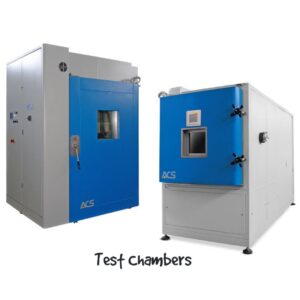How To Unlock Test Chambers in Laboratory test chambers easily reproduce a tiny environment for checking the effects including tremendous temperature, decomposition, moisture, light as well as vibration on a product or sample.
The information gained permits the recognition as well as correction of any potential issues, ensuring that the product will perform as intended under bad conditions. This is vital information, creating these units precious tools in the environmental, food science, pharmaceutical as well as electronics industries, among others.
 Few Features Of Test Chambers In Laboratory
Few Features Of Test Chambers In Laboratory
Test technologies collection from trouble-free temperature examination to thermal testing, which subjects the sample to speedily altering temperatures up to ±70 °C/min, environmental stress screening (ESS), elevation testing, photostability testing, and Advisory Group on Reliability of Electronic Equipment testing (AGREE), in which a series of warmth, humidity as well as vibration tests are performed.
The several variety and sizes of test chambers stability, chambers obtainable underlies the significance of performing your research before you buy. Take the time to define the necessary features for your test procedure or storage needs:
For high-temperature applications, chambers may reach well over 200 °C depending on their material of construction.
Refrigeration feature include CO2, with the potential to almost instantaneously lower a chamber’s temp down to –73 °C, and LN2, to bring it down to –185 °C. Mechanical refrigeration may be achieved via a single-stage compressor or two-stage cascade type. Air-cooling condensers are inexpensive, but may heat up the room, and need more space. Water-cooling condensers do not offer off heat, but require a water supply.
Keep the unit’s pull-down as well as ramp-up time in mind, since several variables influence those numbers, including size, temperature variety as well as power of the heating or refrigeration system.
Although the most ordinary relative humidity range is 20–98% RH, options including dry air purge systems can may lower this further.
Look for features such as microprocessor-based controllers; autotune; LED, LCD, or touch LCD temp and RH displays as well as solid-state RH sensors.
Door Equipped With A Single-Sction Lever And How Can Unlock
The door might be firmly locked by an simple-to-use single-action lever. Even if the operator unintentionally turns on the power while door is unlocked, the door lock finding switch stop heater fan from starting. Besides, in four minutes, the alarm buzzer sounds to call for warning.
Test Chamber Offer High Performance
Test Chamber provides the utmost durability as well as performance for your most challenging test requirements. It is the compulsory test equipment utilized to test as well as store a wide range of products in precise temperature with humidity conditions. Some stability applications Including shelf life testing, expiration date testing, stability testing, accelerated aging as well as many more.
These stability test chambers are ultimate for packaging, pharmaceutical, personal care, life science, medical, biomedical storage, research, and so on.
Temperature Chamber
This temperature chamber is appropriate for drying as well as heat-treatment of flammable synthetic resins or volatile solvents. It is capable with an outburst vent which releases explosion as well as a security door to make sure security.
Related reading
- Everything that you need to know about Vacuum Storage and Desiccators
- How to Use Vertical Laminar Flow Hood?
- How to Choose the Laboratory Fume Hood Exhaust Equipments?
- How To Maintain And Clean Desiccator?
- Squeaky Clean: 9 Life-Changing Tips for Sober Living
- What Is Laboratory Gravity Convection Oven?
- Things to know while Storing Chemicals in your Lab’s Storage Cabinet
- Layman’s Guide – The Working of the Gloves Box
- How To Unlock Test Chambers in Laboratory
- How Do Analytical Balances Work?
- How Do Laboratory Vacuum Ovens Work?
- How Accurate Are Digital Humidity Meters?
- How to use a Desiccator and A Vacuum Storage?


 Few Features Of Test Chambers In Laboratory
Few Features Of Test Chambers In Laboratory 

